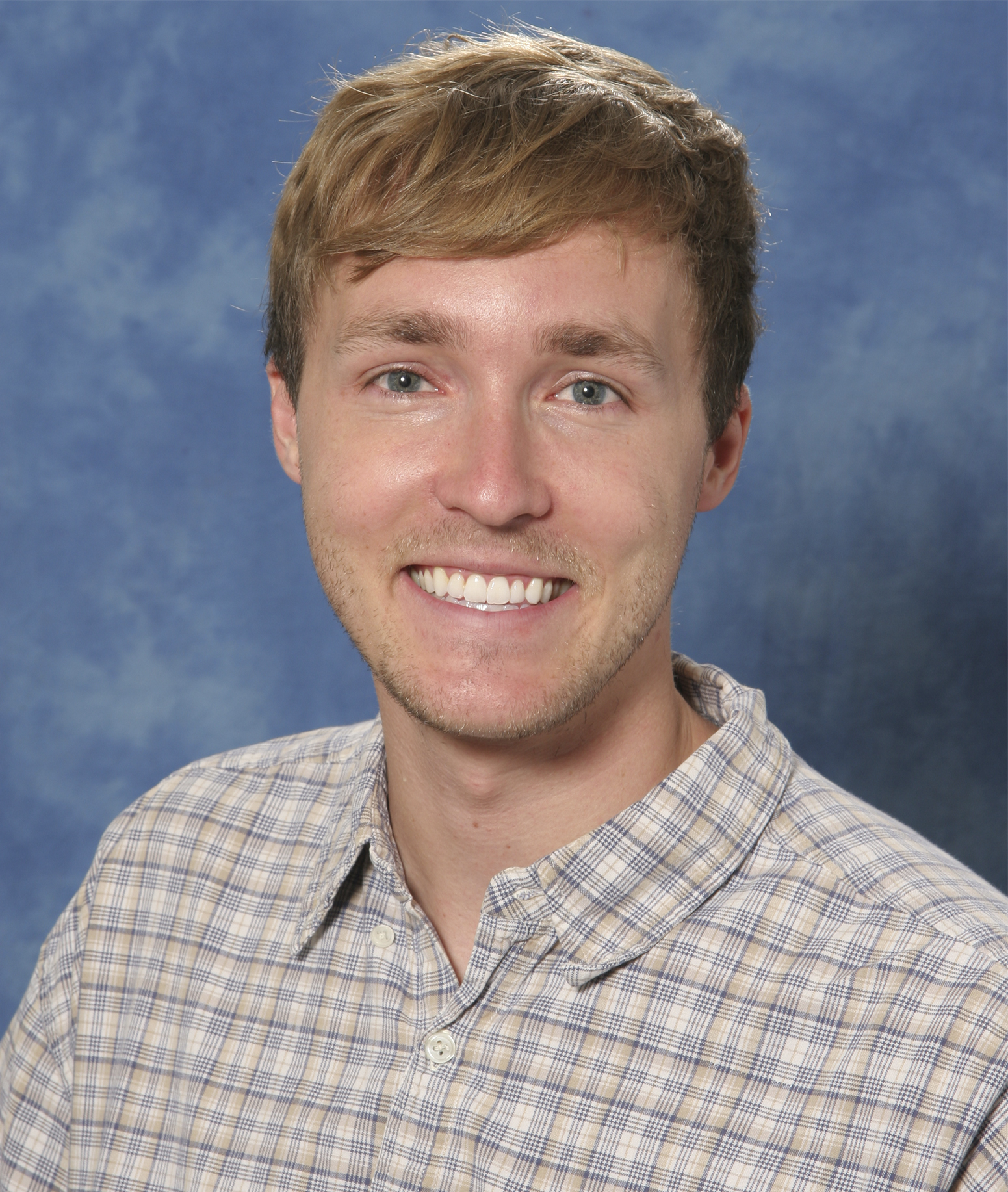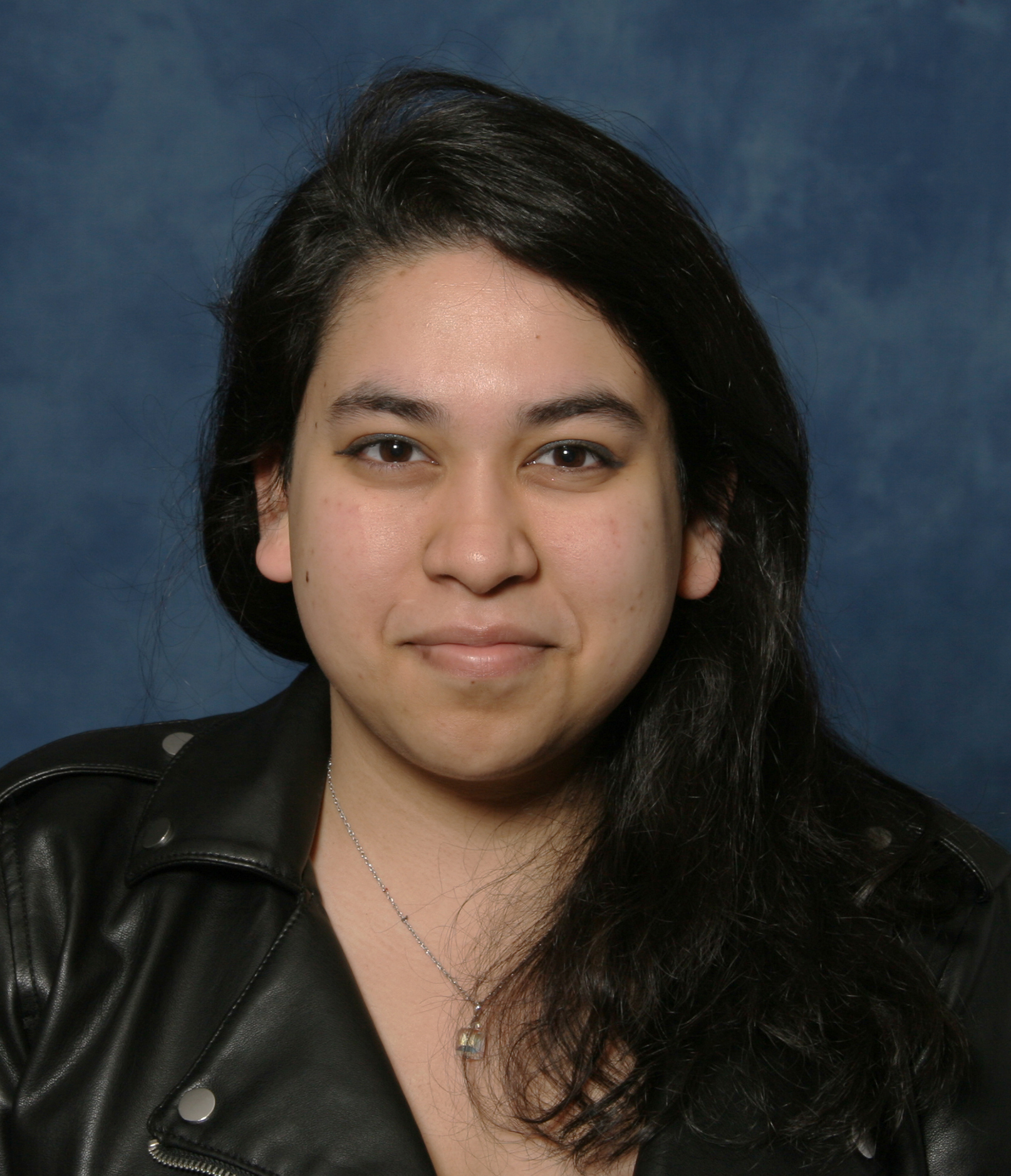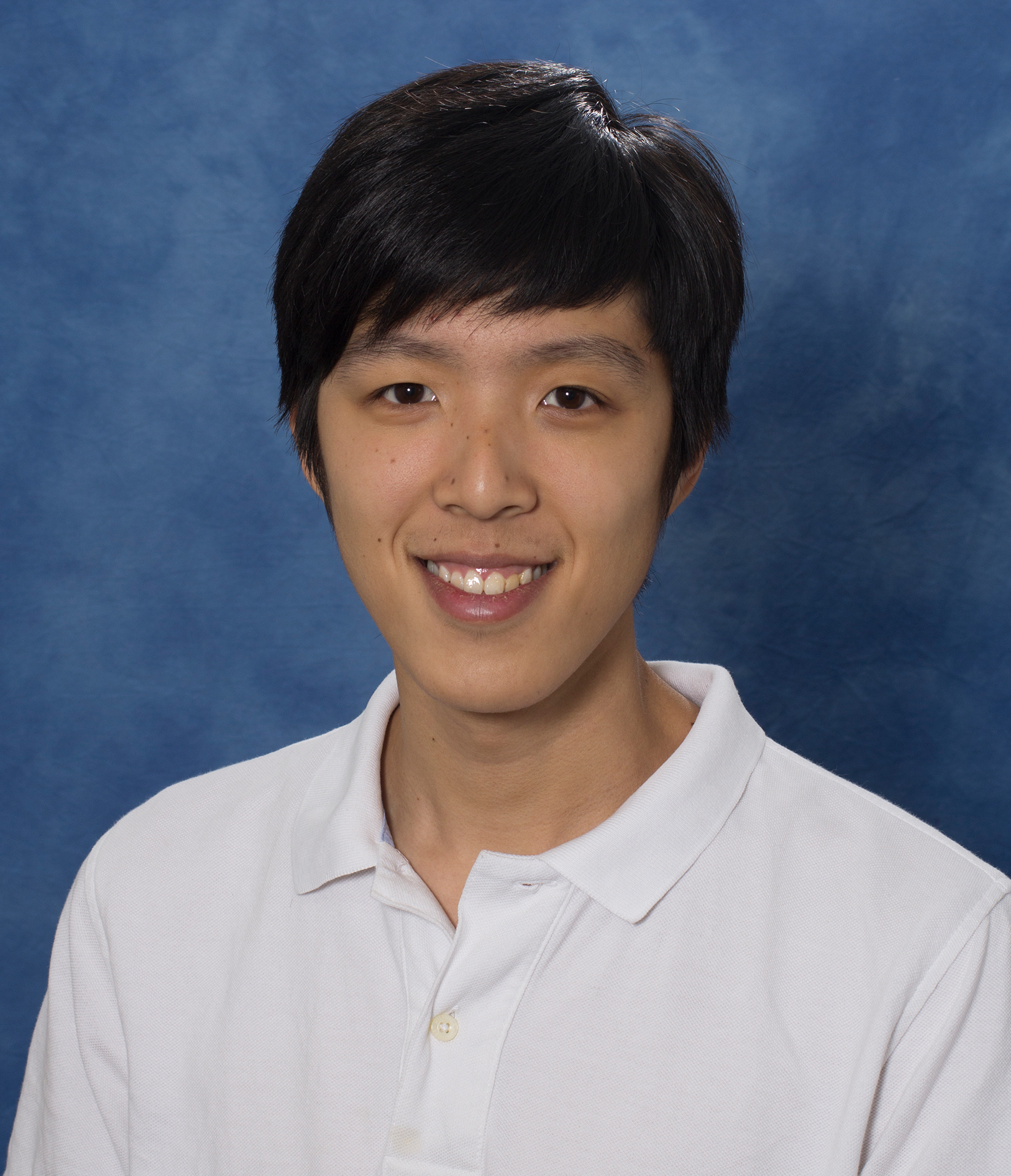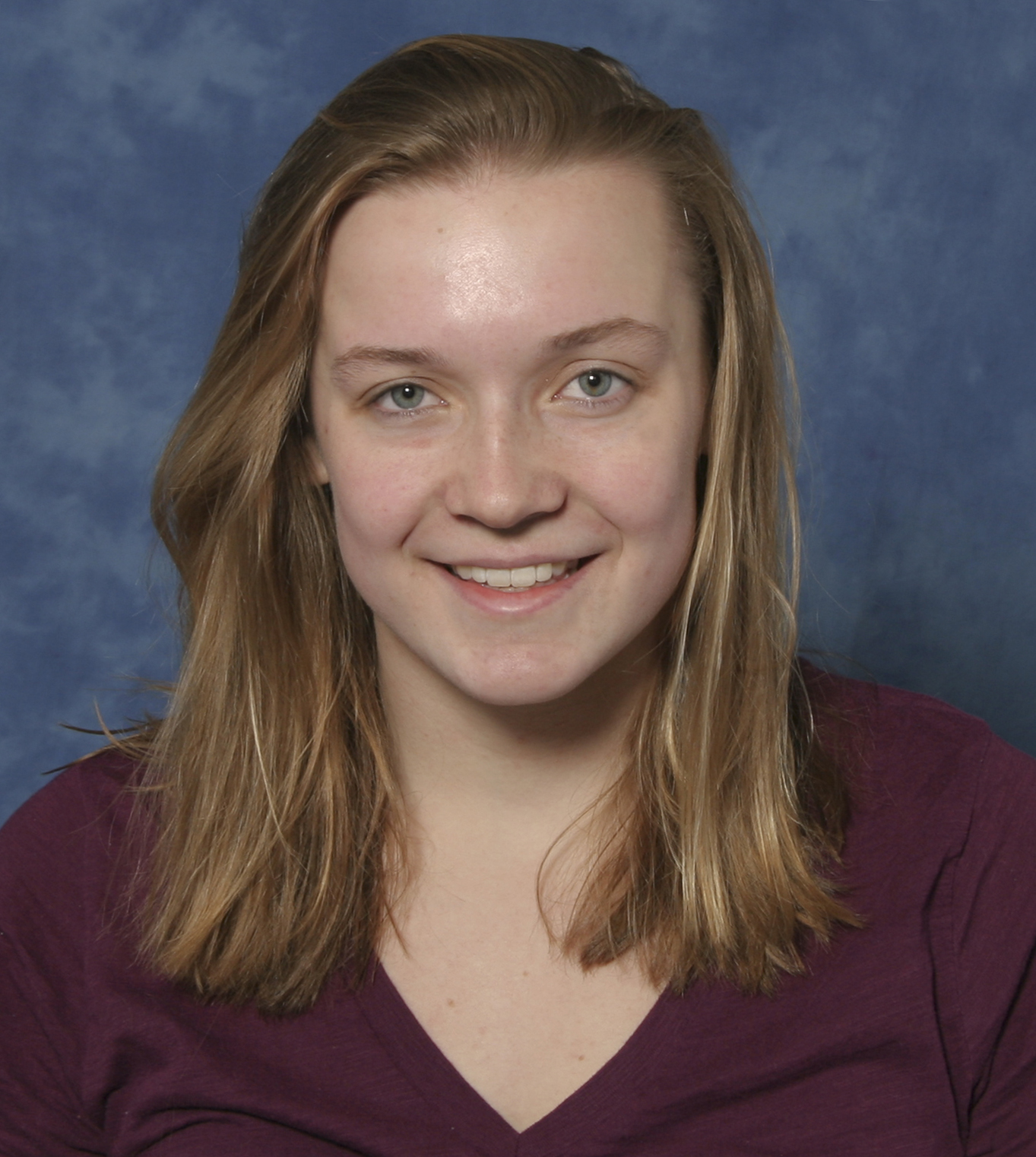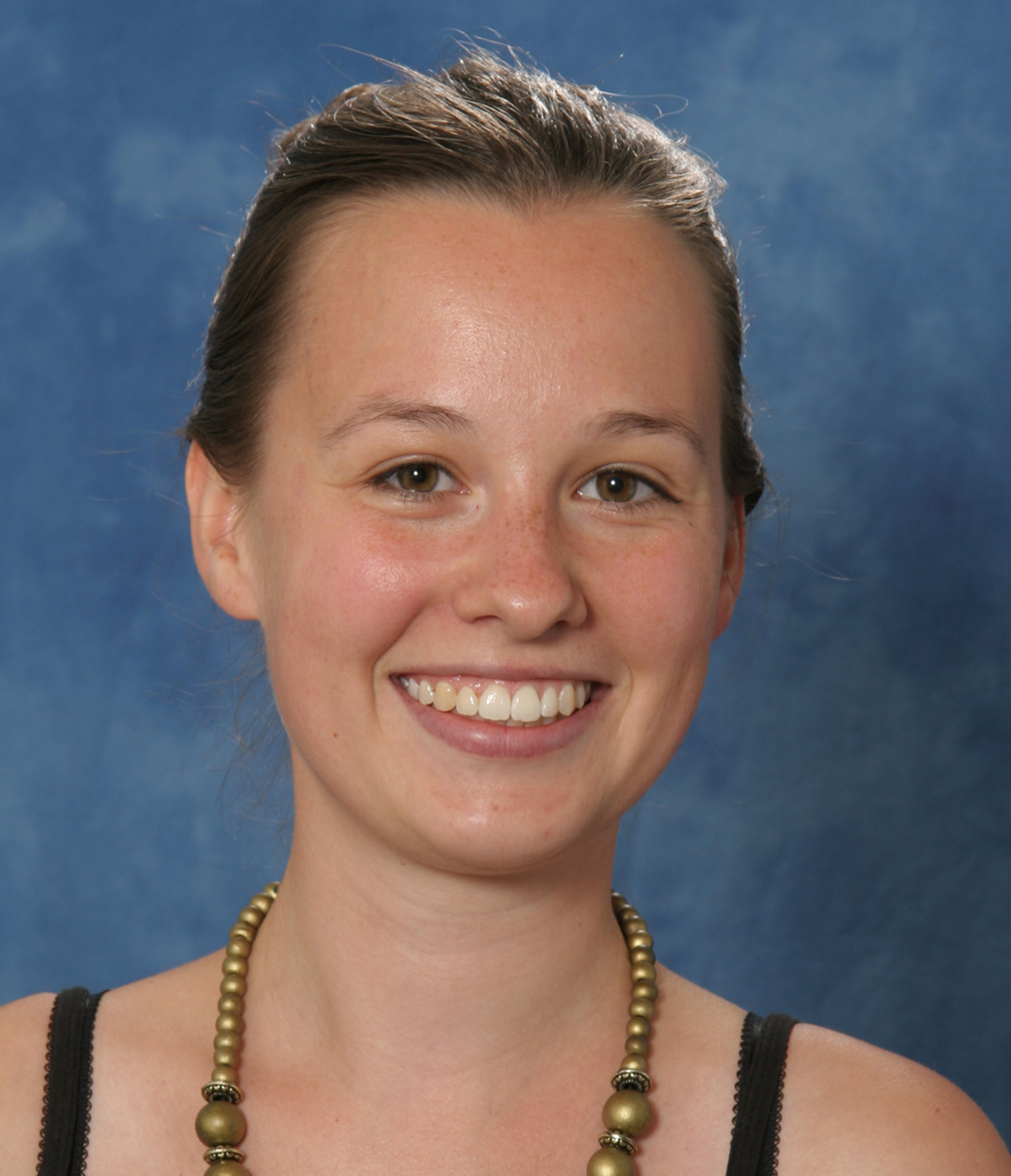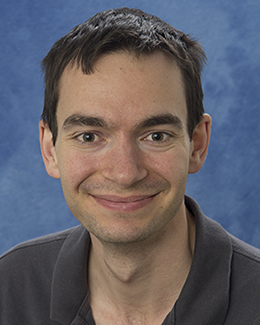 Postdoctoral Research Associate Alexandre Emsenhuber began working at LPL with Professor Erik Asphaug in February 2018. Alexandre's research focuses on collision processes and linking them with orbital dynamics. Collisions between similar-size bodies often leave multiple remnants. By tracking the remnants, Alexandre aims to determine realistic return scenario, when the remnants further collide or are ejected from the system. Alexandre also has an interest in modeling of giant planet formation by using an approach that combines accretion of solids, gas, orbital migration and dynamical interactions. With this method, he can assess the interactions between the different processes involved in the formation of those planets.
Postdoctoral Research Associate Alexandre Emsenhuber began working at LPL with Professor Erik Asphaug in February 2018. Alexandre's research focuses on collision processes and linking them with orbital dynamics. Collisions between similar-size bodies often leave multiple remnants. By tracking the remnants, Alexandre aims to determine realistic return scenario, when the remnants further collide or are ejected from the system. Alexandre also has an interest in modeling of giant planet formation by using an approach that combines accretion of solids, gas, orbital migration and dynamical interactions. With this method, he can assess the interactions between the different processes involved in the formation of those planets.
Alexandre grew up in Neuchâtel (Switzerland) where he obtained a B.S. in Physics in (2011). He earned his M.S. and Ph.D. from the University of Bern with Professor Willy Benz (2017). Alexandre's doctoral research was on impact processes occurring during the formation of planetary systems. He analysed collisions between protoplanets found in theoretical models of planetary formation and modeled specific events that could lead to planetary-scale features, such as the Martian borealis basin. In his free time, Alexandre likes to bike, hike, ski and cook.
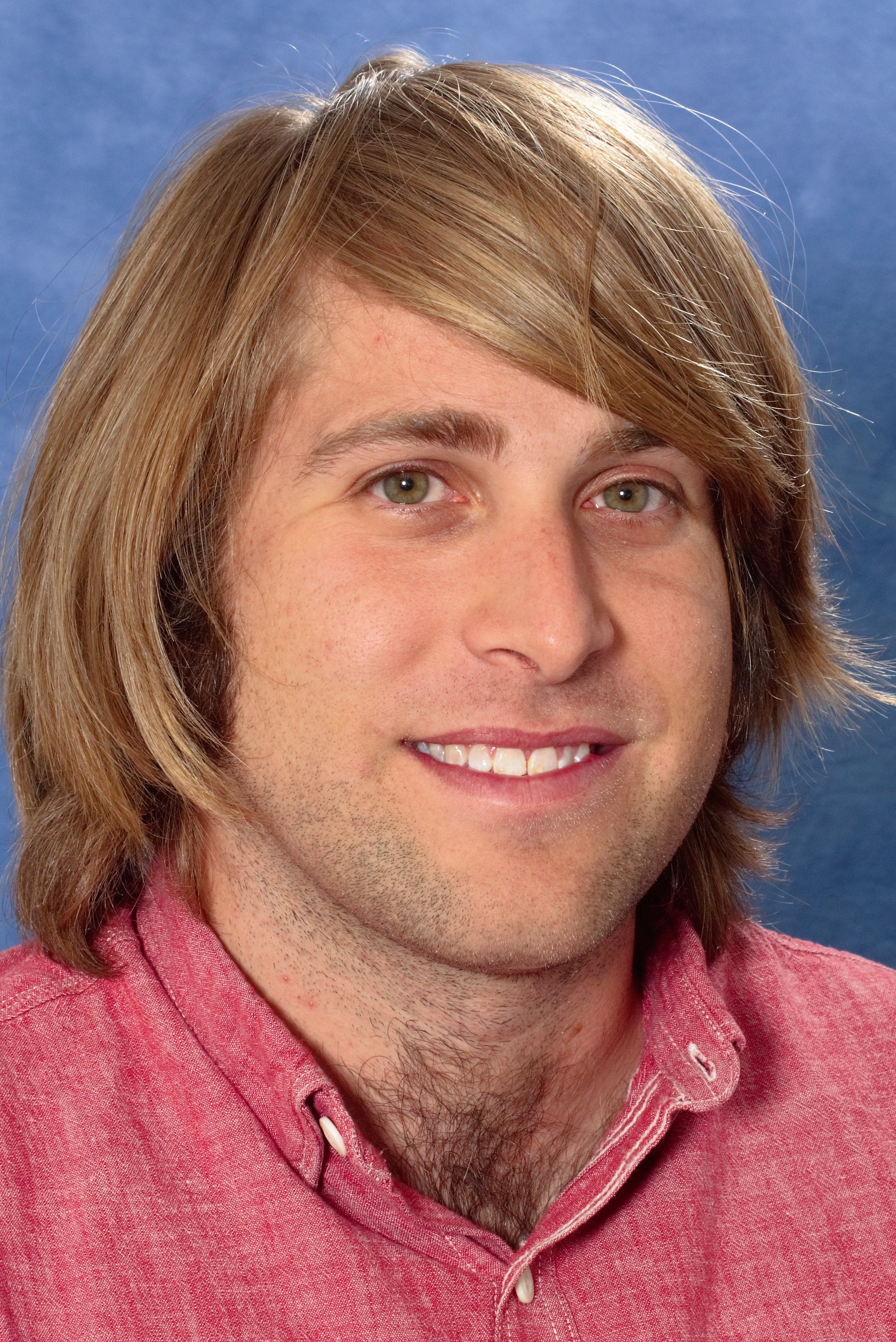 Dave Horvath joined LPL in September 2017 as a Postdoctoral Research Associate working with Associate Professor Jeff Andrews-Hanna. His current research focuses on mapping and characterizing what is potentially the youngest volcanic eruption on Mars, a putative pyroclastic deposit in the Elysium Planitia region. He is also interested in the hydrology and ancient climate of Mars. His future work will focus on using hydrologic models and observations from the Mars Science Laboratory on the Curiosity rover to further constrain the evolution of the climate and hydrology of Gale crater and, by extension, Mars.
Dave Horvath joined LPL in September 2017 as a Postdoctoral Research Associate working with Associate Professor Jeff Andrews-Hanna. His current research focuses on mapping and characterizing what is potentially the youngest volcanic eruption on Mars, a putative pyroclastic deposit in the Elysium Planitia region. He is also interested in the hydrology and ancient climate of Mars. His future work will focus on using hydrologic models and observations from the Mars Science Laboratory on the Curiosity rover to further constrain the evolution of the climate and hydrology of Gale crater and, by extension, Mars.
Dave was raised in Austin, Texas, and did his undergraduate down the road in San Antonio, earning a B.S. in Physics and a B.A. in Mathematics (2011) from St. Mary’s University. From there, Dave moved to Golden, Colorado, to study at the Colorado School of Mines, where he received his Ph.D. in Geophysics (2017). His thesis research was focused on characterizing the methane-based hydrological cycle of Titan and investigating the hydrology of Gale crater during the later stages of hydrologic activity. In his free time, Dave enjoys traveling and hiking, climbing—he's summited 14 of the 53 fourteen-thousand foot peaks in Colorado during his stint in Golden—but as an avid board gamer, he also enjoys a relaxed night of sitting around the game table with friends.


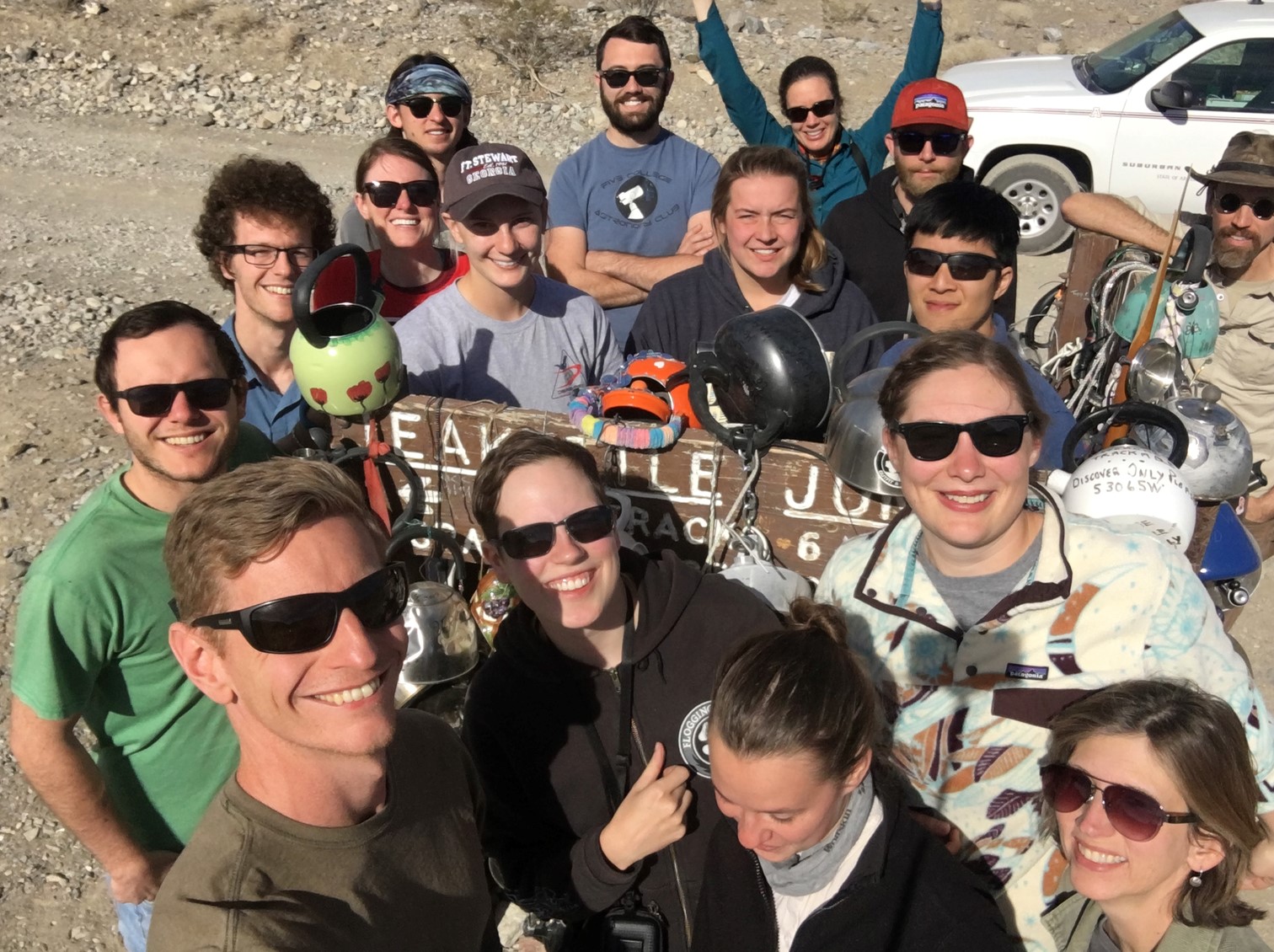
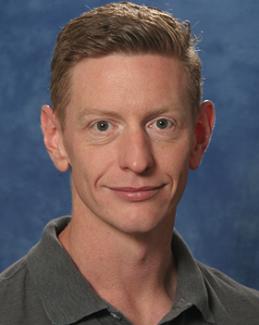
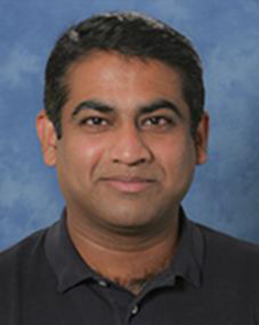
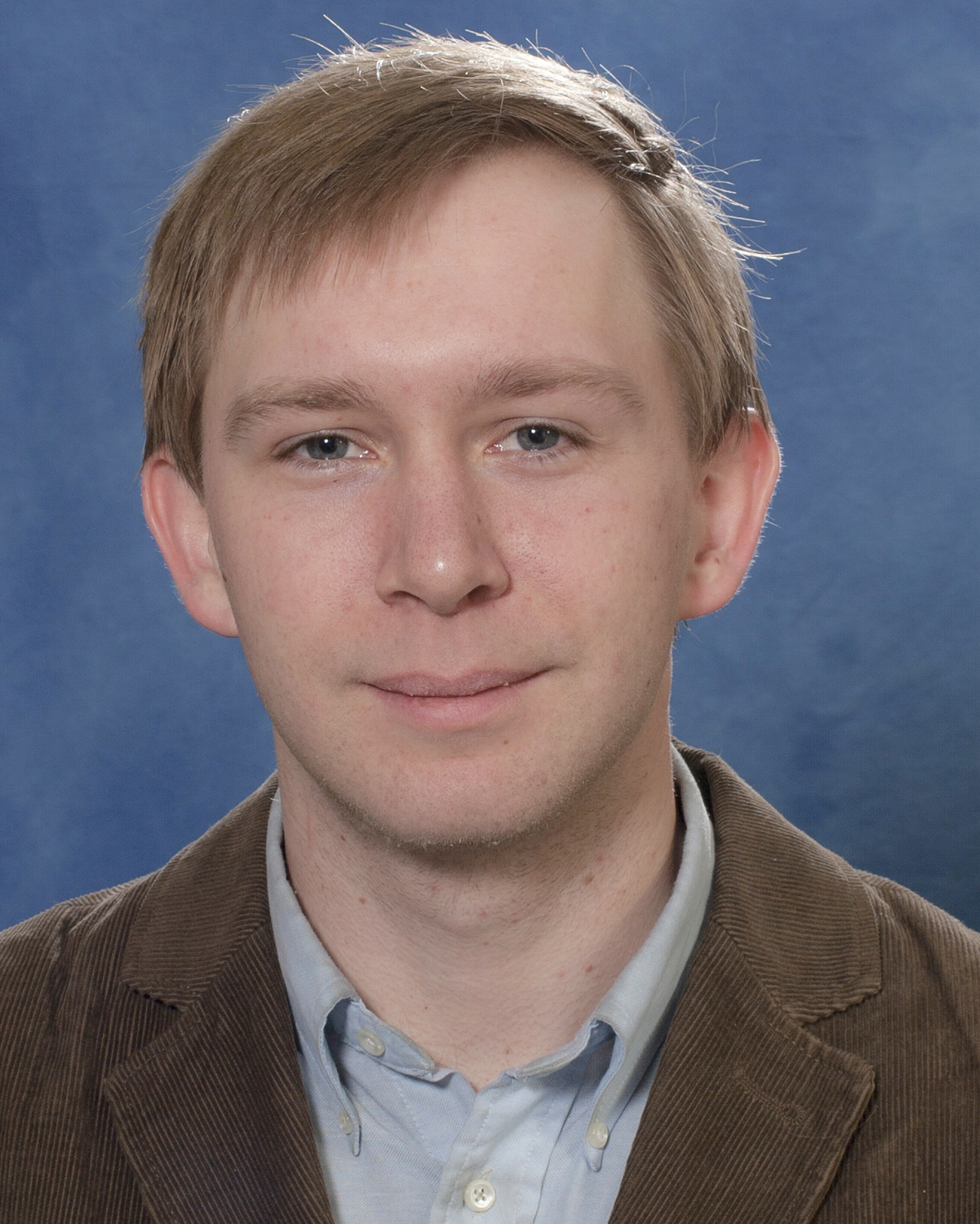 Tad defended his Ph.D. dissertation, The Atmospheric Circulation and Evolution of Close-In Extrasolar Gas Giant Planets, on April 11. He soon begins a prestigious
Tad defended his Ph.D. dissertation, The Atmospheric Circulation and Evolution of Close-In Extrasolar Gas Giant Planets, on April 11. He soon begins a prestigious 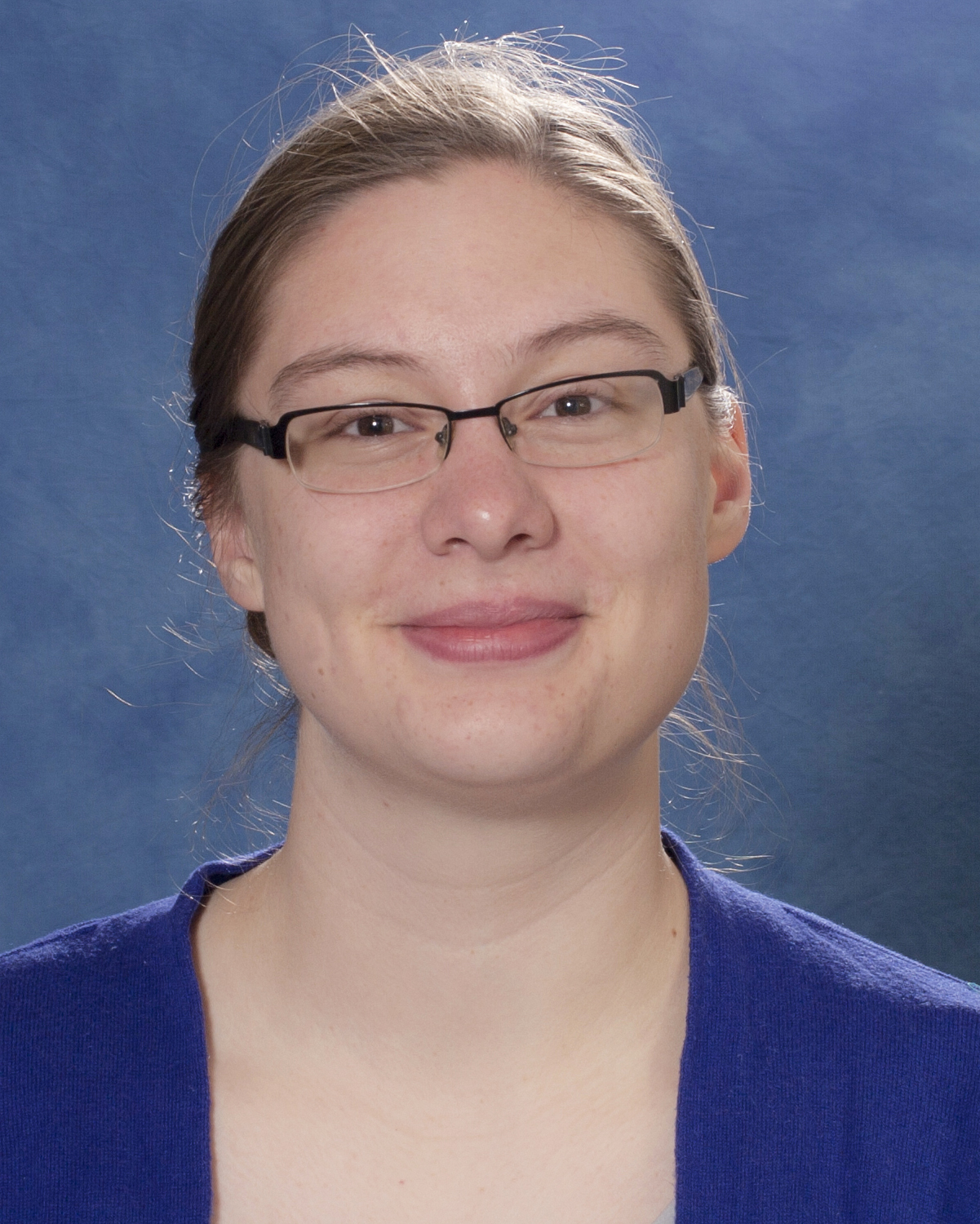 Margaret defended her dissertation, Icy Craters on Mars and Ceres, on May 17. Next up for Margaret is a position at the Planetary Science Institute (Albuquerque), where she will work with Tom Prettyman on the Gamma Ray and Neutron Detector (GRaND) instrument on the Dawn mission.
Margaret defended her dissertation, Icy Craters on Mars and Ceres, on May 17. Next up for Margaret is a position at the Planetary Science Institute (Albuquerque), where she will work with Tom Prettyman on the Gamma Ray and Neutron Detector (GRaND) instrument on the Dawn mission.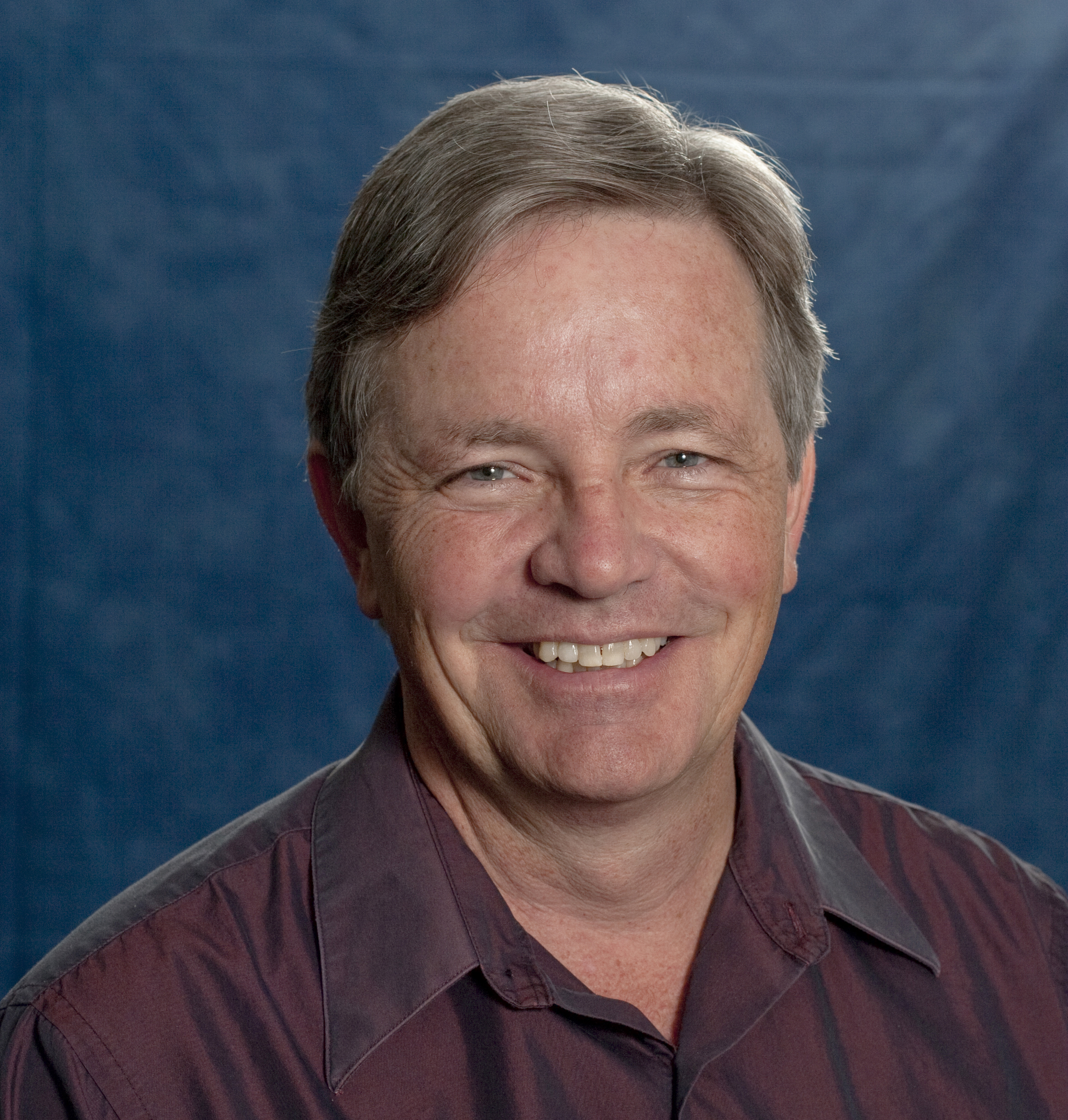
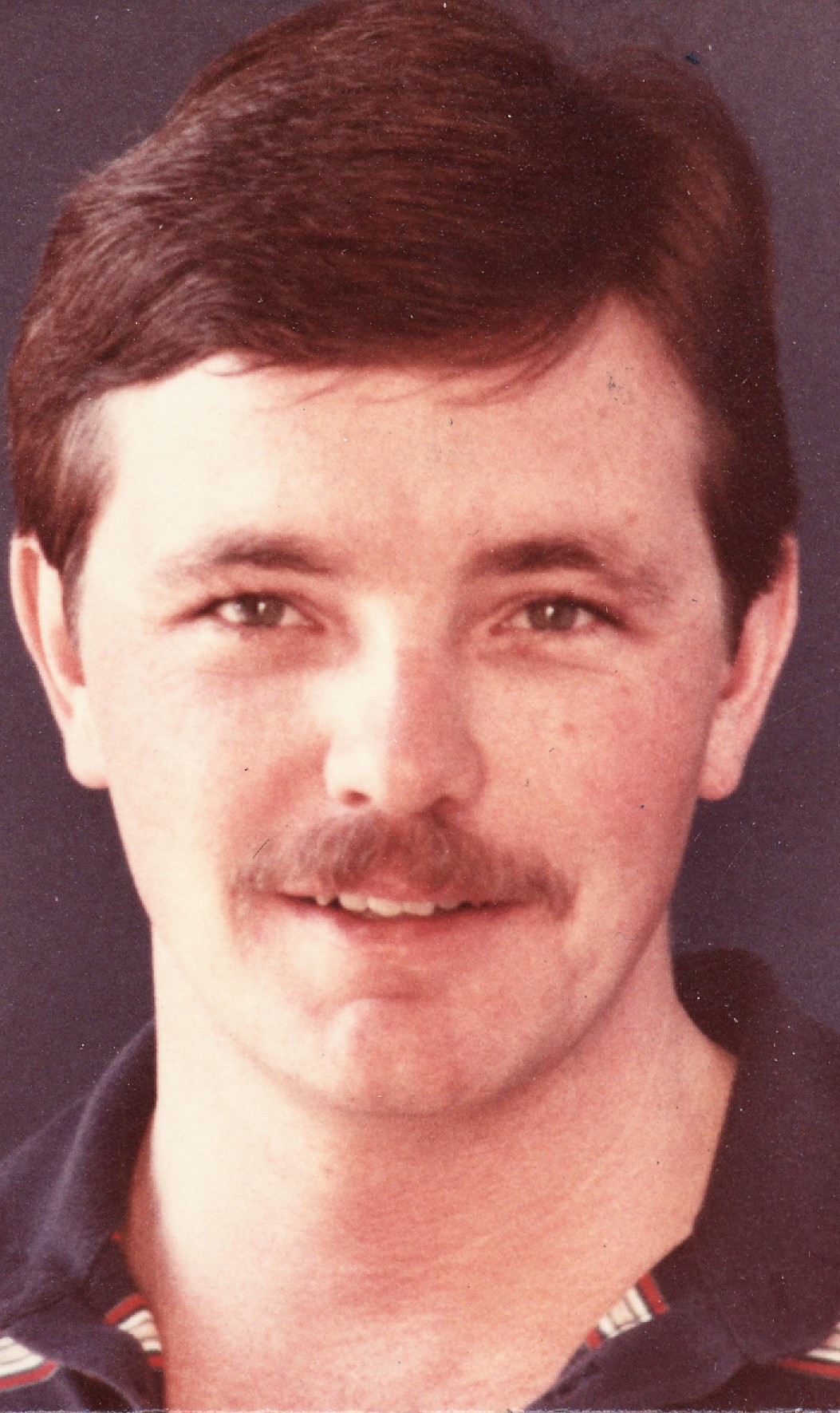
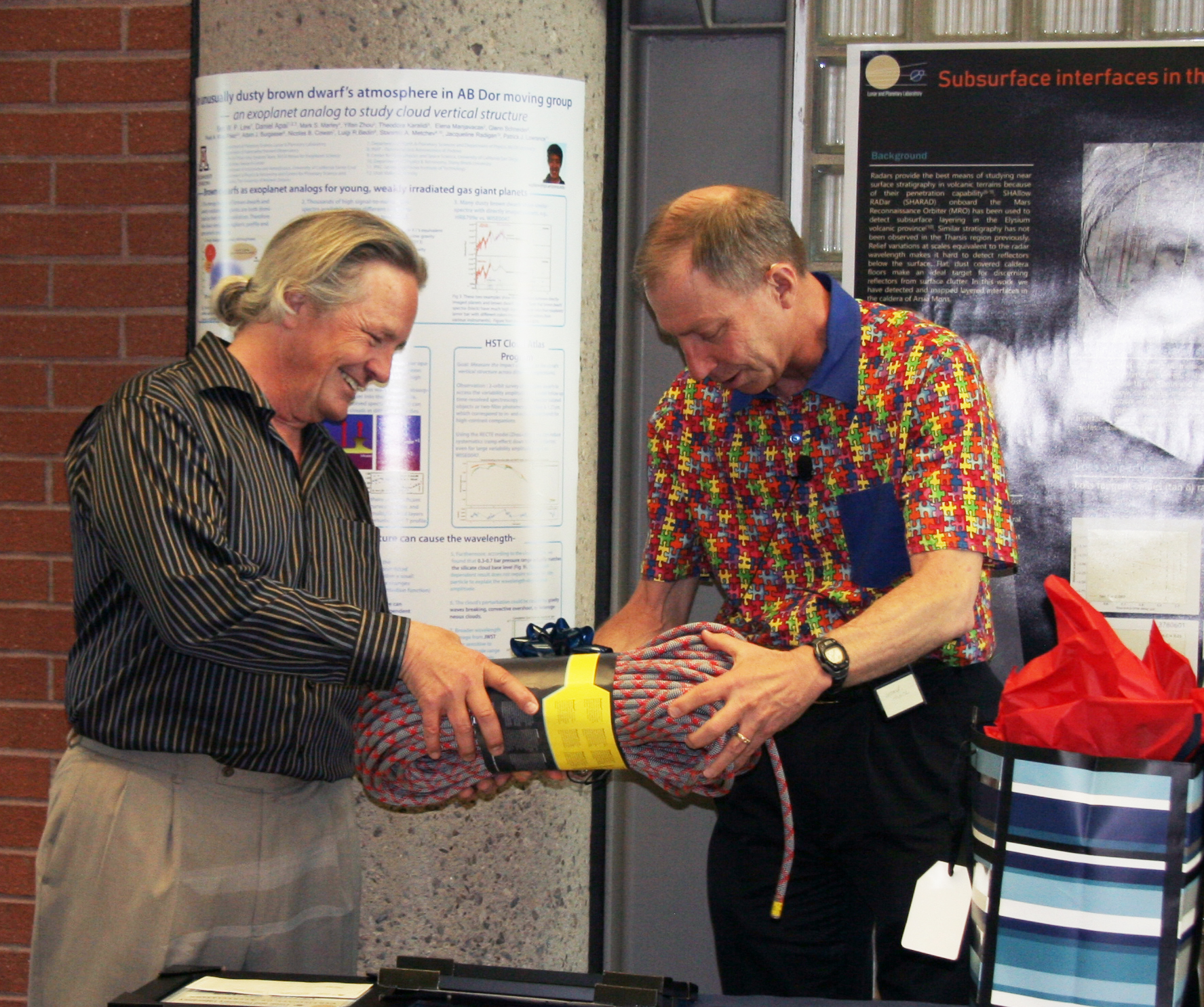
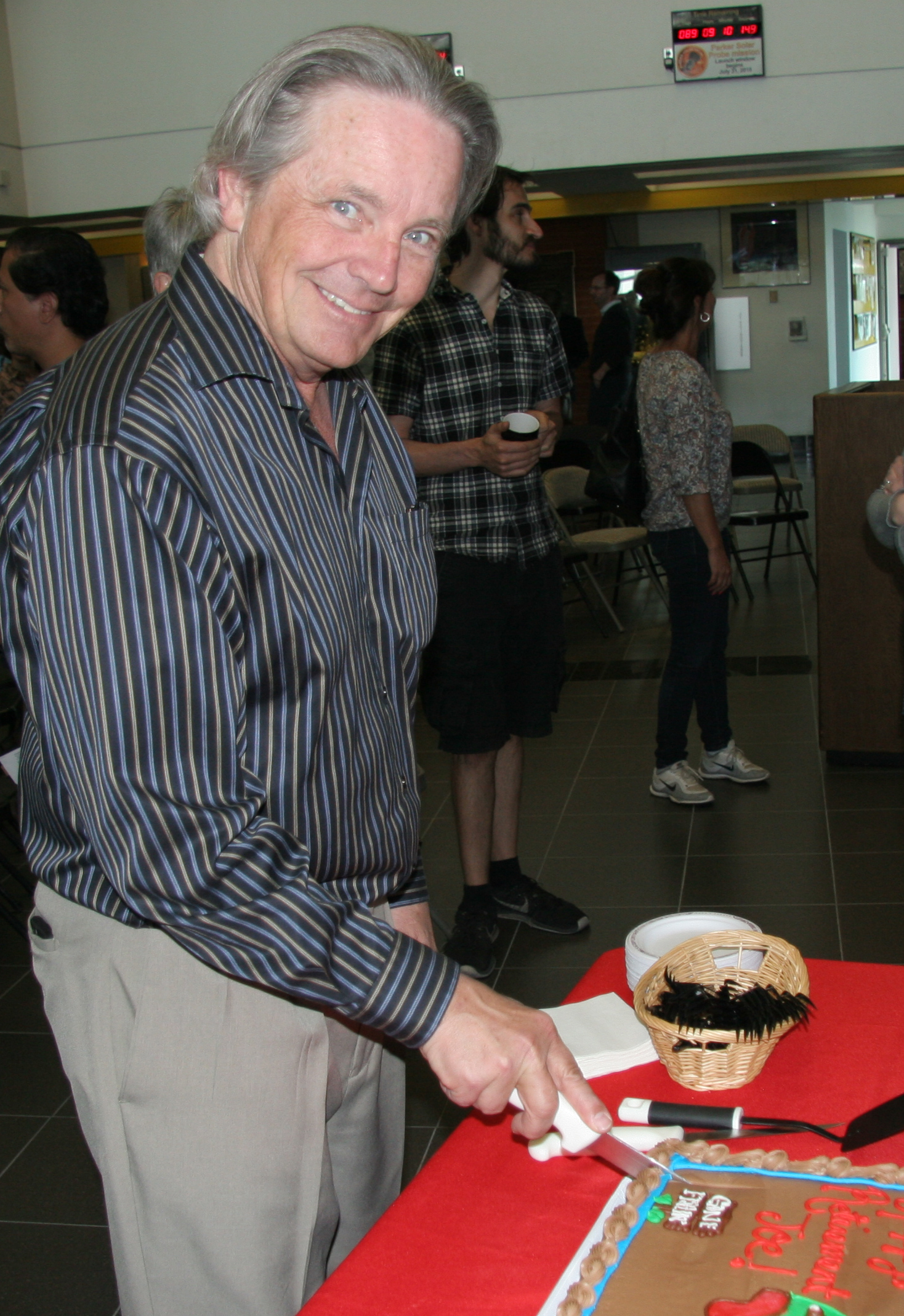
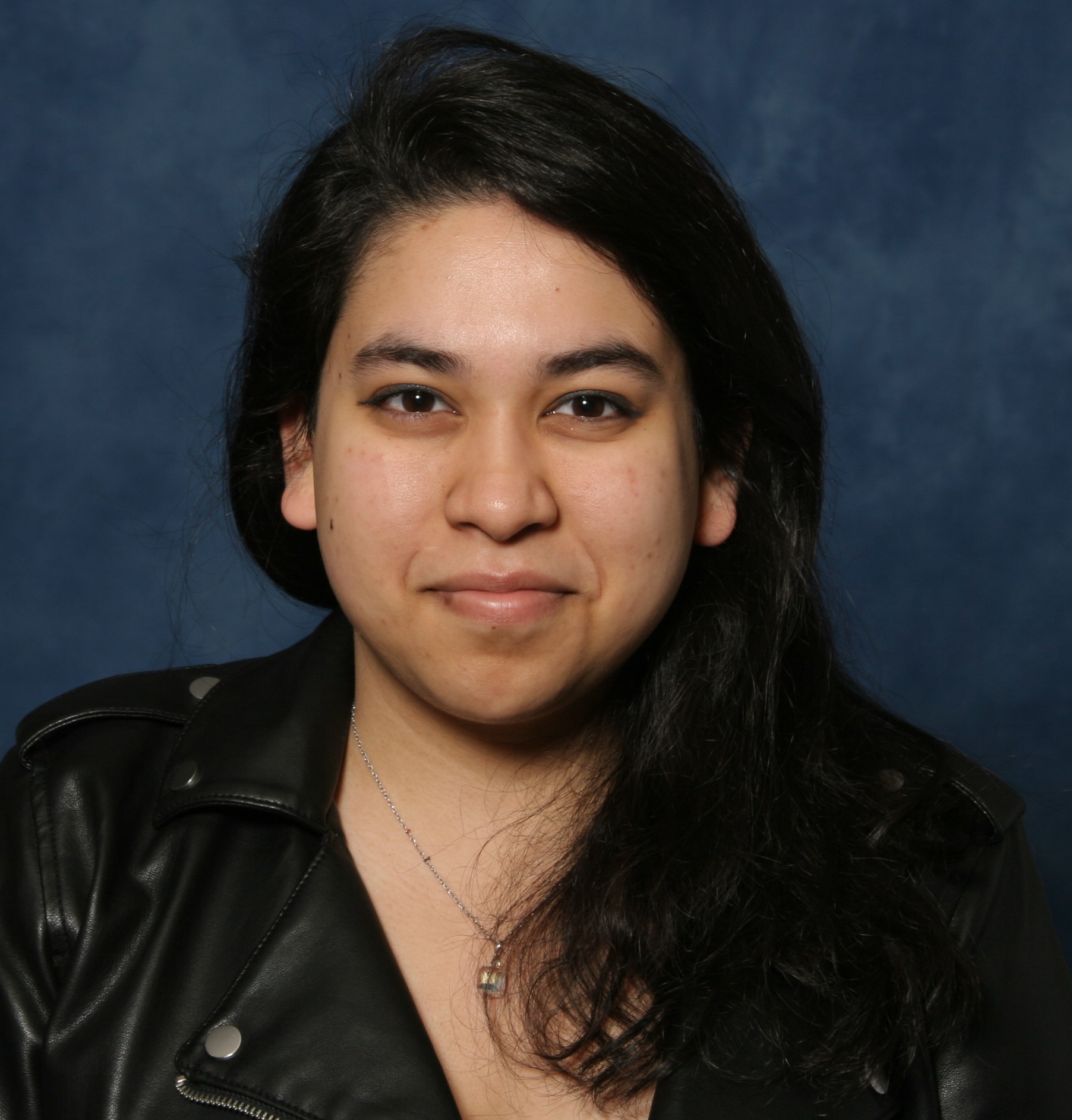 Second-year student
Second-year student 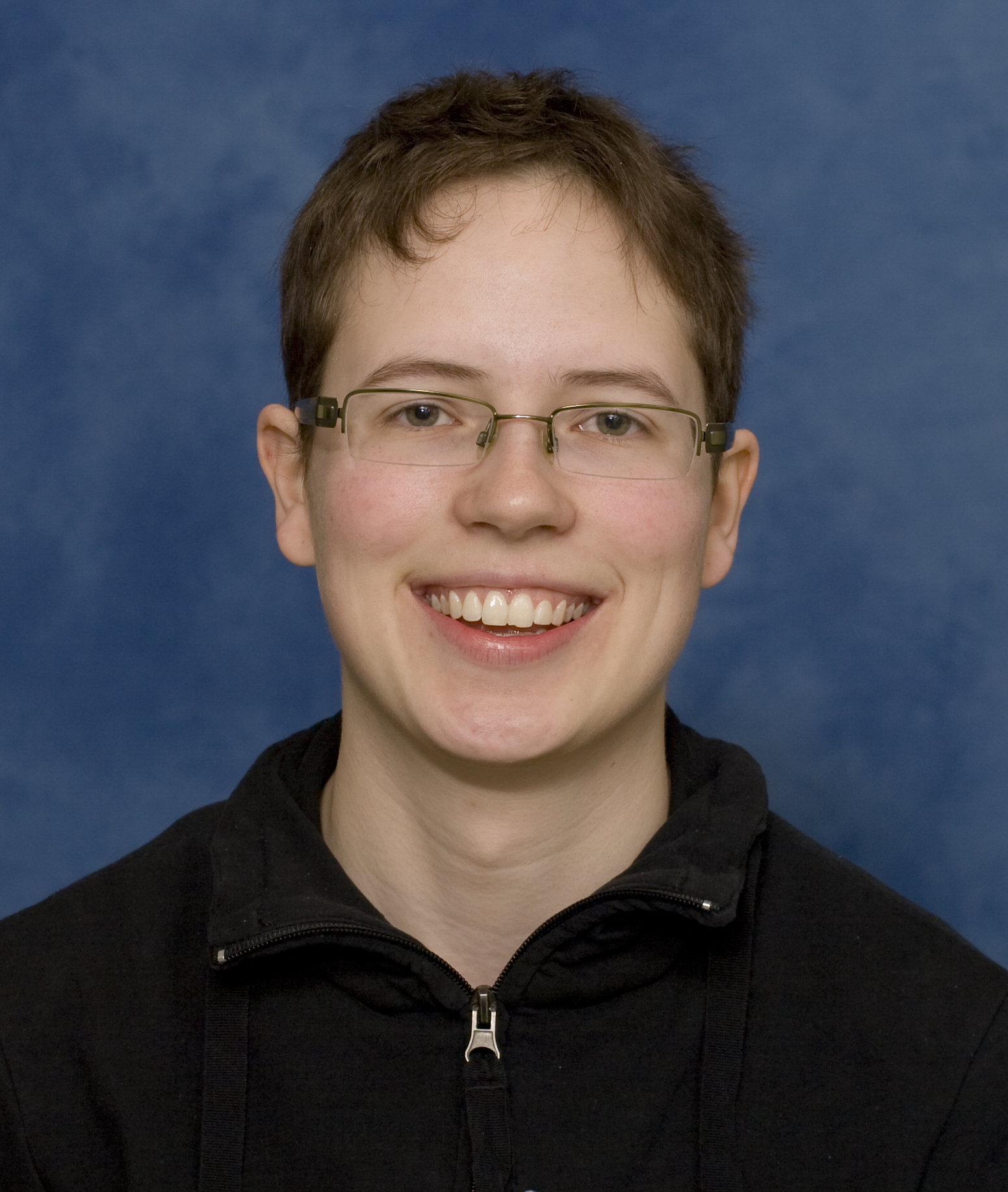 Maria Steinrück, third-year student, received the
Maria Steinrück, third-year student, received the 